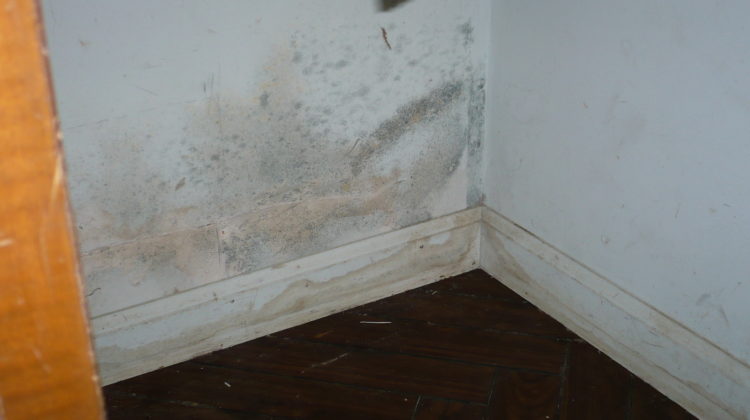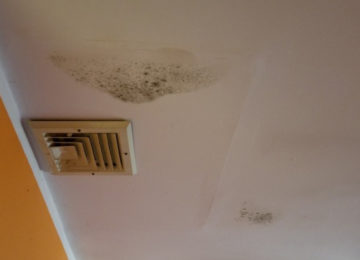Dealing with mold in the home can be a frustrating task for many. Traditional solutions such as bleach are often the first choice, but there are compelling reasons to consider alternatives. Vinegar is a natural solution that offers an effective, non-toxic way to combat mold growth and is particularly suitable for minimizing chemical exposure in the home.
Disclaimer: It is always best to consult with a professional. This article addresses minimal mold issues such as in dishwashers, washing machines and common bathroom issues. The Environmental Protection Agency suggests that professional help be utilized for areas larger than 3 ft x 3 ft (roughly 10 sq. ft).
Acidic in nature, vinegar can penetrate porous surfaces where mold often thrives, disrupting its growth at the roots. This makes it a great choice for areas like bathrooms and kitchens, where mold is often a recurring problem. Additionally, vinegar does not produce harmful fumes, making it safer for both humans and pets while cleaning.
While bleach might kill surface mold, it often fails to address the underlying layers that can lead to resurgence. In comparison, using vinegar not only removes mold but also helps prevent its regrowth over time. For those interested in environmentally friendly cleaning solutions, incorporating vinegar presents a viable alternative that is both safe and effective.
The Effectiveness of Vinegar Against Mold
Vinegar is a popular natural cleaner touted for its antifungal properties. It serves as an alternative to harsher chemicals like bleach, particularly in mold remediation.
Vinegar’s Antifungal Properties
Vinegar is primarily composed of acetic acid. This acidity is key to its efficacy, disrupting the cellular structures of various fungi. Studies indicate vinegar can effectively reduce the presence of certain molds on surfaces.
The natural composition of vinegar minimizes risks associated with chemical exposure. Unlike some commercial cleaners, it doesn’t emit harmful fumes, offering a safer cleaning option, especially in enclosed spaces. Its effectiveness can be attributed to direct application on affected areas.
Comparing Efficacy: Vinegar vs. Bleach
When comparing vinegar and bleach for mold treatment, each has distinct characteristics. Bleach is a strong disinfectant known for its ability to kill almost all pathogens. However, vinegar provides a less toxic alternative while still demonstrating significant antifungal properties. While bleach can eliminate mold on non-porous surfaces, it may not penetrate porous materials effectively. Vinegar, on the other hand, can influence surface mold, particularly in areas less suited for bleach.
Health and Safety Considerations
When choosing between vinegar and bleach for mold removal, health and safety are crucial factors. Each substance has its specific risks and benefits. This section explores how bleach can pose several hazards, while vinegar offers a safer alternative.
The Risks of Bleach
Bleach is a strong chemical that can harm both health and home environments. It emits fumes that may irritate the eyes, skin, and respiratory system. These effects can be particularly problematic in enclosed or poorly ventilated spaces.
Bleach’s corrosive properties can damage surfaces like wood or textiles. It also carries the risk of dangerous reactions if mixed with ammonia or acids, such as vinegar. This can release toxic gases, increasing the potential for accidents.
While bleach can effectively kill mold on hard surfaces, its potency can be a double-edged sword. The risks make it essential to use with extreme caution, including wearing protective gear like gloves and masks, and ensuring proper ventilation. For those with asthma or allergies, exposure to bleach can exacerbate respiratory symptoms.
Advantages of Vinegar for Health and Safety
Vinegar is a natural alternative with fewer health risks. Unlike bleach, it does not produce harmful fumes. It’s safe to use in homes without needing special protective equipment. This makes it a more accessible option for quick mold cleanup.
With its mild acidity, vinegar also poses less risk to household surfaces. This can be beneficial for treating mold on porous materials like drywall, where bleach might cause damage. While it may not kill mold spores as effectively as bleach, vinegar still inhibits mold growth with regular use.
For families, especially those with small children or pets, vinegar presents a more secure choice. Its natural composition ensures it won’t contribute to household toxins, aligning with a safer living environment. This makes it ideal for ongoing maintenance and prevention.
Practical Applications and Usage Tips
Using vinegar instead of traditional cleaning agents like bleach offers benefits such as reducing chemical exposure, protecting surfaces, and maintaining efficiency. Vinegar can be integrated into daily household cleaning tasks, particularly within washing machines and dishwashers.
Vinegar Use in Washing Machines
Vinegar can be a powerful cleaning agent in washing machines. It helps eliminate odors, cut through detergent residue, and prevent mold growth in the drum. To maintain the washing machine, add one cup of white vinegar to an empty machine and run a hot water cycle. This process not only cleans but also deodorizes the machine, leaving it fresh.
For those dealing with mold, this approach can be especially effective. Mold often thrives in damp, dark spaces, making washing machines susceptible. Vinegar acts as a natural mold inhibitor, reducing the risk without the harshness of bleach. Regular monthly cleanings are suggested to keep the washing machine in optimal condition and to extend its lifespan.
Vinegar Use in Dishwashers
In dishwashers, vinegar serves as an effective cleaner for removing build-up and maintaining hygiene. Adding a cup of vinegar to the bottom of the dishwasher and running a hot water cycle can help eliminate soap scum and mineral deposits. This method not only cleans but also helps maintain the efficiency of the appliance by preventing clogging.
Vinegar’s mild acidity also combats mold and mildew that can develop over time. This is particularly beneficial for areas with hard water, where mineral deposits are common. The regular use of vinegar can ensure that the dishwasher functions smoothly, protecting it from long-term damage while keeping it hygiene-focused and odor-free.
Final Thoughts
When dealing with mold, vinegar serves as a compelling alternative to bleach for several reasons. Vinegar is non-toxic and safe for use around children and pets, providing peace of mind in household cleaning. It is effective in removing many mold species due to its acidity, even though it may not have the same instant bleaching effect.
Bleach has the potential to release harmful fumes and should be used cautiously, particularly in spaces with limited ventilation. Chlorine bleach can also cause respiratory irritation and exacerbate certain health conditions.
Affordability and accessibility make vinegar an attractive option. It is available in most grocery stores and on Amazon. It can be used in combination with certain other household cleanings (but NEVER with bleach), offering a versatile and economical solution.
In terms of application, vinegar can be applied directly to affected areas and requires no dilution, simplifying the process. When left to sit for an hour, it can be an effective preventive measure against mold regrowth.
For those interested in environmentally friendly options, vinegar is biodegradable and less harmful to surfaces and the environment compared to bleach. Those seeking an alternative to strong chemical cleaners might find vinegar to be a sensible choice. The effectiveness of vinegar varies with the type of mold, so it’s important to continually assess its results.
Disclaimer: These statements have not been evaluated by the Food and Drug Administration. The contents of this article made available via NY IAQ Solutions are for informational purposes only and do not constitute medical advice. The content presented here is not intended to be a substitute for professional medical advice, diagnosis, or treatment. Always seek the advice of a qualified healthcare provider with any questions you may have regarding a medical condition or using a new product. If you think you may be suffering from any medical condition, you should seek immediate medical attention. You should never delay seeking medical advice, disregard medical advice, or discontinue medical treatment because of information provided by NY IAQ Solutions. Reliance on any information provided by this article is solely at your own risk.


